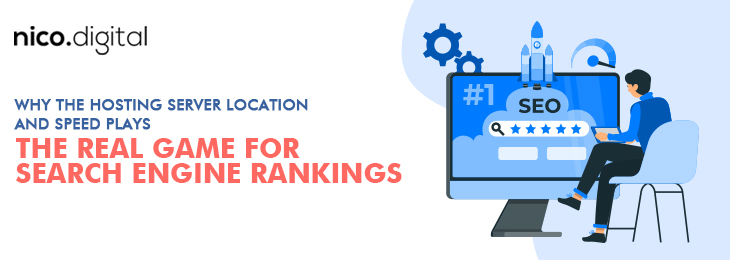To begin with, you can recall the conventional auxiliaries such as links, content creation, sitemaps, and robots.txt files. Other than that, new stuff has taken a toss over the internet. They range over voice search, featured snippets, and mobile-first index. Now, you will say I have covered every parameter on the go. If that’s your thought, I must say you have missed out on something very important. What is it?
Amidst the chaos, one factor is often overlooked- web hosting. Going forward, it can impact a site’s engagement as well as page speed, thus degrading the positive organic performance.
It’s that significant to be considered on the whole.
Why is web hosting so crucial for SEO optimization?
The selection of a web host regulates the overall steadiness of site experience towards the visitors. If you want to shield against the server errors, page timeouts and prevent users from pulling around to Google, a solid web host is all you need to depend upon. At the end of the day, everyone wants a web host to back up the integral attempts, which won’t unnecessarily disrupt along the way.
As a speedier page load time amounts to good user experience, it constitutes a pivotal factor in shaping the search engine ranking of a website. Hence, the hype around geo-location of IP and server.
1. Hosting server speed comes with high uptime assurance
Do you know that your host’s uptime promise is the most significant factor to determine SEO-friendliness?
To begin with, uptime defines the percentage of the time a site stays online and reachable. The higher the uptime, the better the organic results. On a true note, more reliable hosts serve to offer higher uptime convenience. If you are running after best impressions, select a host with a minimum of 99.9 percent uptime guarantee or even higher than that, if its within your limits. The outcomes construe to approximately 1.44 minutes of downtime per day and 8.8 hours in one year. You can already guess the boost in the system.
On the other hand, be cautious of any host that pledges 100 percent uptime. No matter what, there will always be some downtime. The motif is to keep it as little as possible. Once upgraded, it can’t but affect the SEO performance. Never think of doing away with the framework.
2. Server location calls the for prior attention
While uptime defines the accessibility of site content to users, your server location strives to account for the speediness. How? Let’s take a quick look-
Suppose, you have availed a shared, VPS, or dedicated server hosting plan. Then your site lives on a physical server in a data center somewhere as against cloud hosting. Now, what if you want the data center to be located in close proximity to the majority of your site visitors. There comes the play of server location.
The farther the server, the longer it takes to load a site. That defines one side of the coin. What’s the flip flop over here?
It says server location can appear suspicious to search engines, thereby affecting SEO results. For instance, if you operate in one country with a host located halfway around the globe, there might be something iniquitous going on. Hence, a server itself must be fast enough to steer through the unexpected lags. Are we yet missing out on something? Well, yes.
It triggers that the host should further optimize performance through a Content Delivery Network (CDN).
Worried about getting all this right? Well, Nico Digital is here to help you. We have a team of experienced developers who have been creating websites for many years. We offer website development and website design services. We know how to design your website so that you don’t can focus on the growth of your business. Besides, we also make sure to update your website regularly so that nothing could corrupt your website and make it slow.

